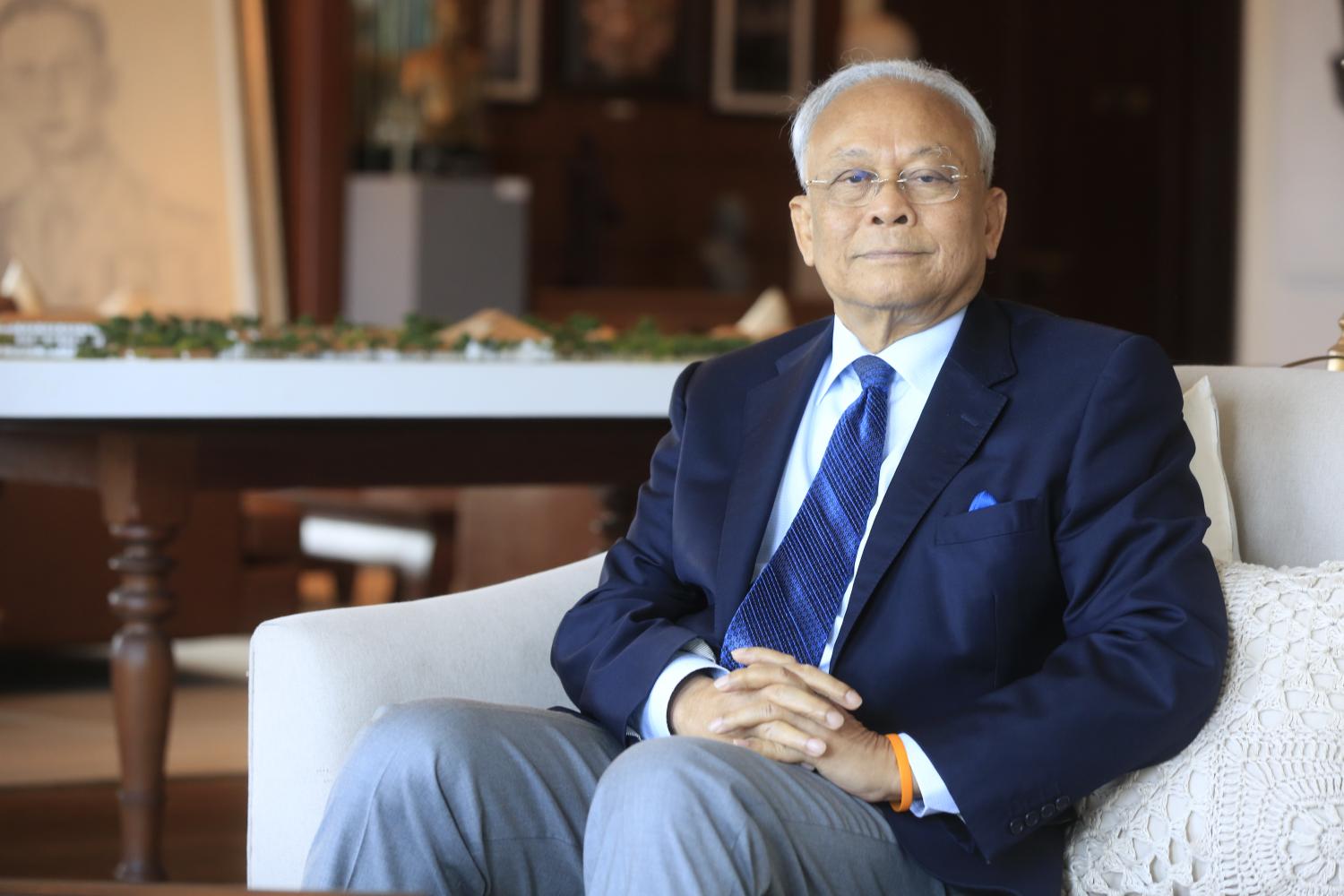
Former protest leader Suthep Thaugsuban, who was recently sentenced to jail for five years for his role in street rallies to oust the elected government led by Yingluck Shinawatra, voiced his concerns about the ongoing political crisis, saying there are masterminds behind the scenes who are pulling the strings to instigate a civil war.
In a special interview with the Bangkok Post, Mr Suthep, co-founder of the Action Coalition for Thailand (ACT) Party, said on Monday the current situation is worrying as the political power struggle is taking place both in conventional and unconventional forms.
Multiple fronts
On the parliamentary front, some political parties and MPs are pushing for charter amendments to pave the way for a new constitution to be drawn up, which would lead to division among Thais, Mr Suthep said.
Supports of an amendment have argued that the current constitution is undemocratic as it was the result of the 2014 coup, but Mr Suthep disagreed, saying their calls to abrogate the constitution is based on personal biases.
"They failed to look at the constitution's merits which actually benefit democracy," he said. "Amendments should be made to sections which are seen as undemocratic -- there's no need to write a new constitution."
Meanwhile, he continued, those who disagree with the push for a new charter are concerned that amendments may affect the status of the monarchy.
He said although the parliament recently agreed that chapters 1 and 2 of the constitution won't be amended, there are about 30 other sections which deal with royal powers which aren't likely to be spared from further scrutiny.
Chapter 1 of the constitution contains sections which define Thailand as a single, indivisible kingdom and a democratic regime with the King as the head of state. Chapter 2 contains sections which deal with royal prerogatives.
Street politics
On another front, efforts are being made to bring politics onto the streets, with growing calls to reform the monarchy and for Section 112 of the Criminal Code, or the lese majeste law, to be scrapped, Mr Suthep said, adding those inside and outside parliament seem to be working hand in glove.
"Thais can have different opinions, but we must put the interest of the nation above everything else. We have to work together to avoid any severe conflict that deepens social division, which would lead to a civil war as some countries or some groups wish to see,'' Mr Suthep said.
"The best way to prevent this by following the law. Those who take to the streets must not break the law or infringe on others' rights,'' he said, adding that those who disagree with anti-government protesters should also avoid mounting counter-demonstrations.
Despite the differing political stances, one can respect each other and must not consider others to be enemies, added Mr Suthep, who is a former secretary-general of the Democrat Party.
"Ultimately, the nation must survive and society must be at peace. We have to be united and put the country's interests first. Changes should take place in line with legitimate procedures,'' he said.
Civil War?
Mr Suthep said that some groups have been trying to plunge the country into civil war, though he believed it would unlikely happen because of Thais' cultural predisposition.
"From my experience, it will be difficult for the country to reach a civil war, even though several groups are trying to provoke it. It is worrying, but it is impossible because most Thais by nature are not extremists or prone to violence,'' Mr Suthep said.
Commenting on the government's performance, Mr Suthep said that the government is in a tough position, as the cracks begin to show among coalition parties, as it struggles to deal with the economic impact of the Covid-19 pandemic.
"How long the Prayut Chan-o-cha government will be able to stay on in office remains to be seen. But I think there is no other alternative that is acceptable to the people, except Gen Prayut," he said.
"I am not looking down on others, but I think the public won't be happy to see the leaders of other political parties as prime minister given the current circumstances.
"One of Gen Prayut's strengths is that we have never heard him being involved in corruption. Plus, he also remains steadfast in his loyalty to the nation," Mr Suthep said.
Ready to appeal
Mr Suthep is one of the eight former leaders of the disbanded People's Democratic Reform Committee (PDRC) jailed by the Criminal Court last month, before the Appeal Court later granted them bail.
Mr Suthep said that he would fight in court to prove his innocence, adding that he and other protest leaders staged the protests of their own volition because at the time the country did not have much choice.
"We knew what we would face... We don't regret our decisions," he said.
